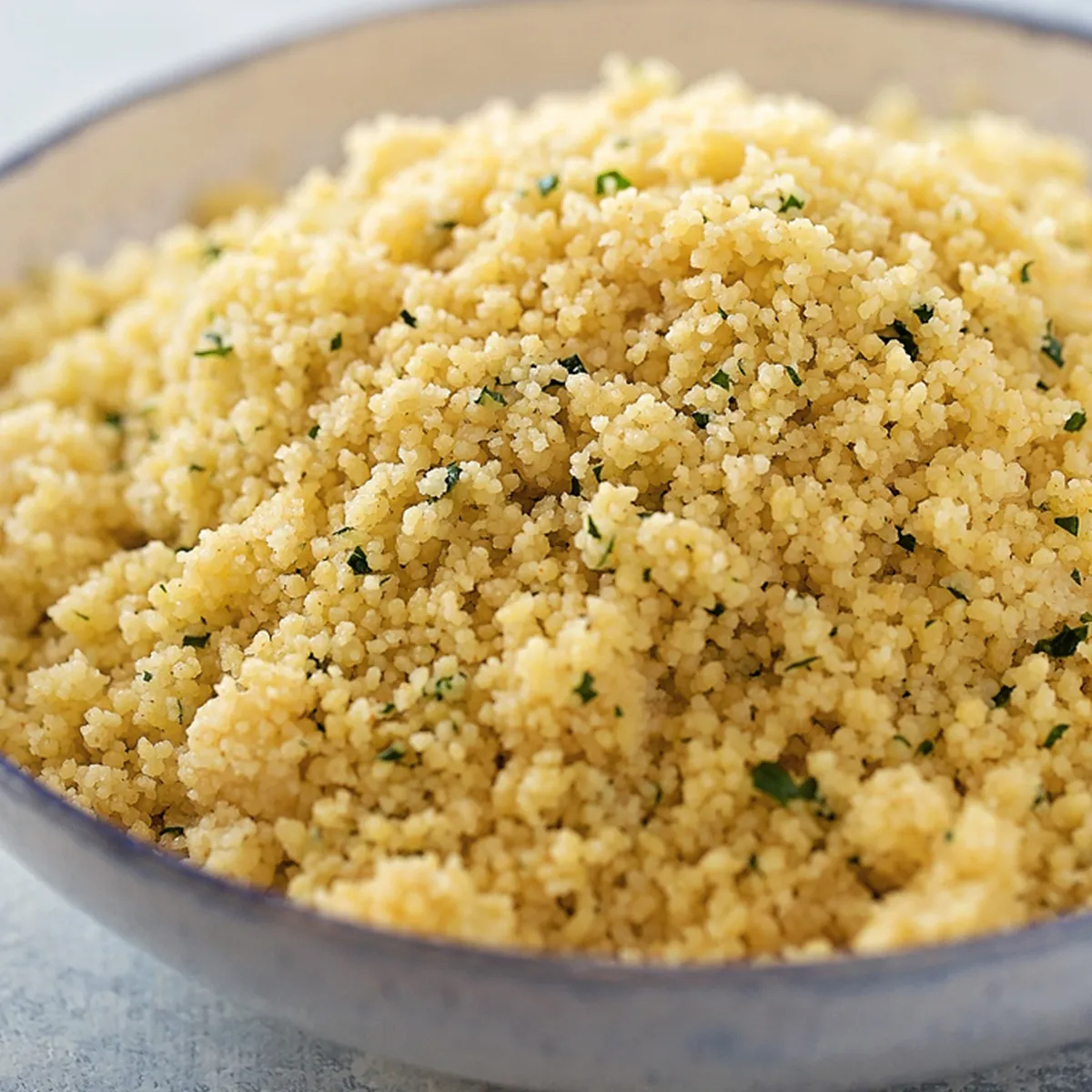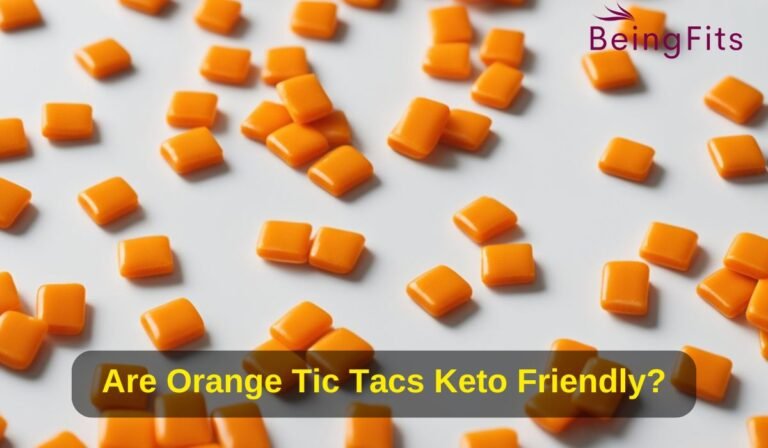Is Couscous Keto Friendly?
Couscous, commonly found in various cuisines, isn’t suitable for a ketogenic diet because it’s rich in carbs. This analysis will thoroughly examine why couscous isn’t compatible with keto and how its carb content affects ketosis. Is Couscous Keto Friendly?
We’ll also dissect couscous’s nutritional makeup, weighing its pros and cons, and offer alternative keto-friendly options for those who enjoy couscous’s texture and adaptability. This guide endeavors to equip you with the knowledge necessary to navigate your keto journey wisely.
In recent times, couscous has gained traction in Western cultures, appreciated for its adaptability and simple preparation methods.
Is Couscous Keto-Friendly? Couscous
Couscous doesn’t fit the keto diet because it’s high in net carbs. With 21.82 grams of net carbs per 100 grams, it exceeds the typical 20-gram daily carb limit for keto.
The Keto Diet & Whole Grains
The ketogenic diet, also known as the keto diet, promotes a low-carb eating approach that encourages the body to burn fats instead of carbohydrates. When it comes to couscous, a type of pasta made from semolina and wheat flours derived from durum wheat semolina, its carbohydrate content is significant, aligning it with high-carb foods.
While whole grains like couscous offer valuable fiber and essential amino acids, they tend to be rich in carbohydrates. This includes options such as brown rice, wild rice, and, indeed, couscous. For example, just one cup of couscous contains approximately 36 grams of carbohydrates.
In a ketogenic diet, the daily carbohydrate intake typically doesn’t surpass 50 grams of net carbs, and sometimes it’s even lower. Clearly, a single serving of couscous consumes a considerable portion of this limit. Therefore, while couscous may fit well into a balanced diet that emphasizes whole grains and diverse grain options, it’s not an ideal choice for those following a ketogenic lifestyle.
Learn more: How To Follow A Keto Diet For Weight Loss
The Nutritional Profile of Couscous
Explore the nutritional essence of couscous with our detailed breakdown of its contents per 100 grams:
Macronutrients:
- Net Carbs: 21.82g
- Water: 72.57g
- Energy: 469.0kJ
- Protein: 3.79g
- Total Lipid (Fat): 0.16g
- Ash: 0.26g
- Carbohydrate, by Difference: 23.22g
- Fiber, Total Dietary: 1.4g
- Total Sugars: 0.1g
Micronutrients:
- Calcium: 8.0mg
- Iron: 0.38mg
- Magnesium: 8.0mg
- Phosphorus: 22.0mg
- Potassium: 58.0mg
- Sodium: 5.0mg
- Zinc: 0.26mg
- Copper: 0.041mg
- Manganese: 0.084mg
- Selenium: 27.5µg
- Thiamin: 0.063mg
- Riboflavin: 0.027mg
- Niacin: 0.983mg
- Pantothenic Acid: 0.371mg
- Vitamin B-6: 0.051mg
- Folate, Total: 15.0µg
- Choline, Total: 3.3mg
- Lutein + Zeaxanthin: 25.0µg
- Vitamin E (Alpha-Tocopherol): 0.13mg
- Vitamin K (Phylloquinone): 0.1µg
Fatty Acids:
- Total Saturated: 0.029g
- SFA 16:0: 0.027g
- SFA 18:0: 0.001g
- Total Monounsaturated: 0.022g
- MUFA 16:1: 0.001g
- MUFA 18:1: 0.022g
- Total Polyunsaturated: 0.064g
- PUFA 18:2: 0.06g
- PUFA 18:3: 0.003g
Amino Acids:
- Tryptophan: 0.049g
- Threonine: 0.1g
- Isoleucine: 0.147g
- Leucine: 0.259g
- Lysine: 0.073g
- Methionine: 0.059g
- Cystine: 0.107g
- Phenylalanine: 0.184g
- Tyrosine: 0.1g
- Valine: 0.162g
- Arginine: 0.14g
- Histidine: 0.077g
- Alanine: 0.111g
- Aspartic Acid: 0.155g
- Glutamic Acid: 1.367g
- Glycine: 0.12g
- Proline: 0.417g
- Serine: 0.179g
Dive into couscous’s wealth of nutrients, from its carb content to its array of vitamins, minerals, and amino acids, enriching your diet with its wholesome goodness.
Related: Is Mustard Keto Friendly?
How Many Carbs And Net Carbs In Raw Couscous?
As per the USDA, a single cup (173g) of uncooked couscous contains approximately 134 grams of carbohydrates, with 8.6 grams attributed to dietary fiber. Hence, this equates to 125.4 grams of net carbs in one cup of uncooked couscous. Net carbs denote the total carbohydrate value minus the fiber content, as fiber remains undigested by the body and does not contribute to net carb intake.
How Many Carbs And Net Carbs In Cooked Couscous?
According to USDA data, a single cup of cooked couscous (160g) holds approximately 37 grams of carbohydrates, with 2.2 grams attributed to dietary fiber. This implies that roughly 35 grams of net carbs are present in one cup of cooked couscous.
Health Benefits Of Couscous
Discover the array of health benefits that couscous offers:
- Nutrient-Rich: Couscous is packed with essential nutrients like iron, magnesium, and B vitamins, supporting overall health and vitality.
- Heart Health: With its low fat content and high fiber content, couscous promotes heart health by lowering cholesterol levels and improving digestion.
- Weight Management: Couscous is a great choice for weight management due to its low calorie density and high satiety, helping to control appetite and reduce calorie intake.
- Energy Boost: Being a good source of carbohydrates, couscous provides a steady release of energy, making it an excellent choice for fueling physical activity and maintaining energy levels throughout the day.
- Digestive Health: The fiber in couscous aids digestion, prevents constipation, and promotes a healthy gut microbiome.
- Bone Health: Couscous contains calcium and magnesium, essential minerals for bone health, helping to prevent osteoporosis and maintain strong bones.
Learn more: Is Black Pepper Keto Friendly?
Is Pearl Couscous Keto Friendly?
Pearl couscous, while a nutritious option, is not typically considered keto-friendly due to its relatively high carbohydrate content. A single cup of cooked pearl couscous can contain around 37 grams of carbs, with approximately 35 grams of net carbs after subtracting dietary fiber.
For individuals adhering to a ketogenic diet, which restricts carb intake to induce ketosis, pearl couscous may exceed the daily carb limit.
However, there are plenty of low-carb alternatives like cauliflower rice, broccoli rice, or shirataki noodles that align better with keto guidelines while still offering a satisfying texture and taste. These substitutes provide options for enjoying similar dishes without compromising the state of ketosis.
Keto Couscous Substitutes
Looking for keto-friendly alternatives to couscous? Consider these nutritious substitutes that fit seamlessly into your low-carb lifestyle:
- Cauliflower Rice: Swap traditional couscous for cauliflower rice, a low-carb favorite packed with vitamins, minerals, and fiber. It mimics the texture of couscous and pairs well with various dishes.
- Broccoli Rice: Another excellent option is broccoli rice, offering a similar texture and taste profile to couscous. Rich in antioxidants and low in carbs, it’s a wholesome choice for keto dieters.
- Shredded Cabbage: Opt for shredded cabbage as a crunchy, low-carb substitute for couscous. It’s versatile, easy to prepare, and adds a refreshing element to salads or stir-fries.
- Zucchini Noodles: Embrace zucchini noodles, also known as zoodles, as a creative alternative to couscous. With minimal carbs and a satisfying texture, they enhance both the flavor and nutritional value of your meals.
- Spaghetti Squash: Transform spaghetti squash into a keto-friendly couscous substitute by scraping out its noodle-like strands. It’s high in fiber, low in carbs, and serves as a hearty base for various recipes.
Learn more: Is Pineapple Keto Friendly?
The Bottom Line
In summary, while couscous provides essential nutrients such as iron, magnesium, and certain B vitamins, its high carbohydrate content renders it incompatible with a ketogenic diet.
Consumption of couscous could surpass the daily carbohydrate limit prescribed by most ketogenic meal plans, disrupting the state of ketosis and potentially undermining the diet’s benefits.
Nevertheless, the versatility of a varied diet lies in discovering substitutes. Options like cauliflower rice, broccoli rice, and shredded cabbage offer low-carbohydrate alternatives that not only please the taste buds but also meet the nutritional criteria of a ketogenic regimen.
These substitutes often contain more fiber and sometimes even higher protein content than couscous, promoting a well-rounded ketogenic eating pattern.
FAQs
[sp_easyaccordion id=”3524″]



